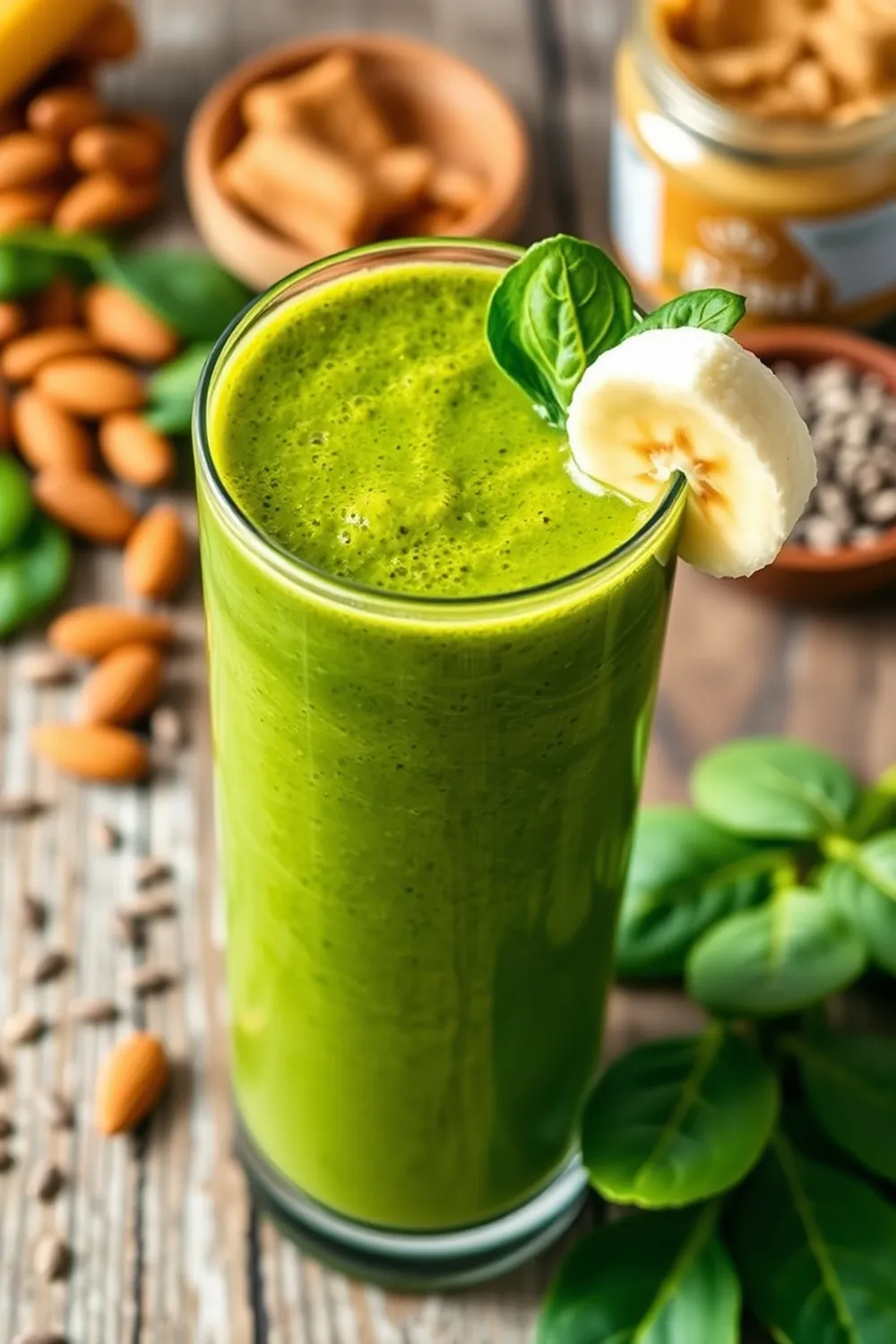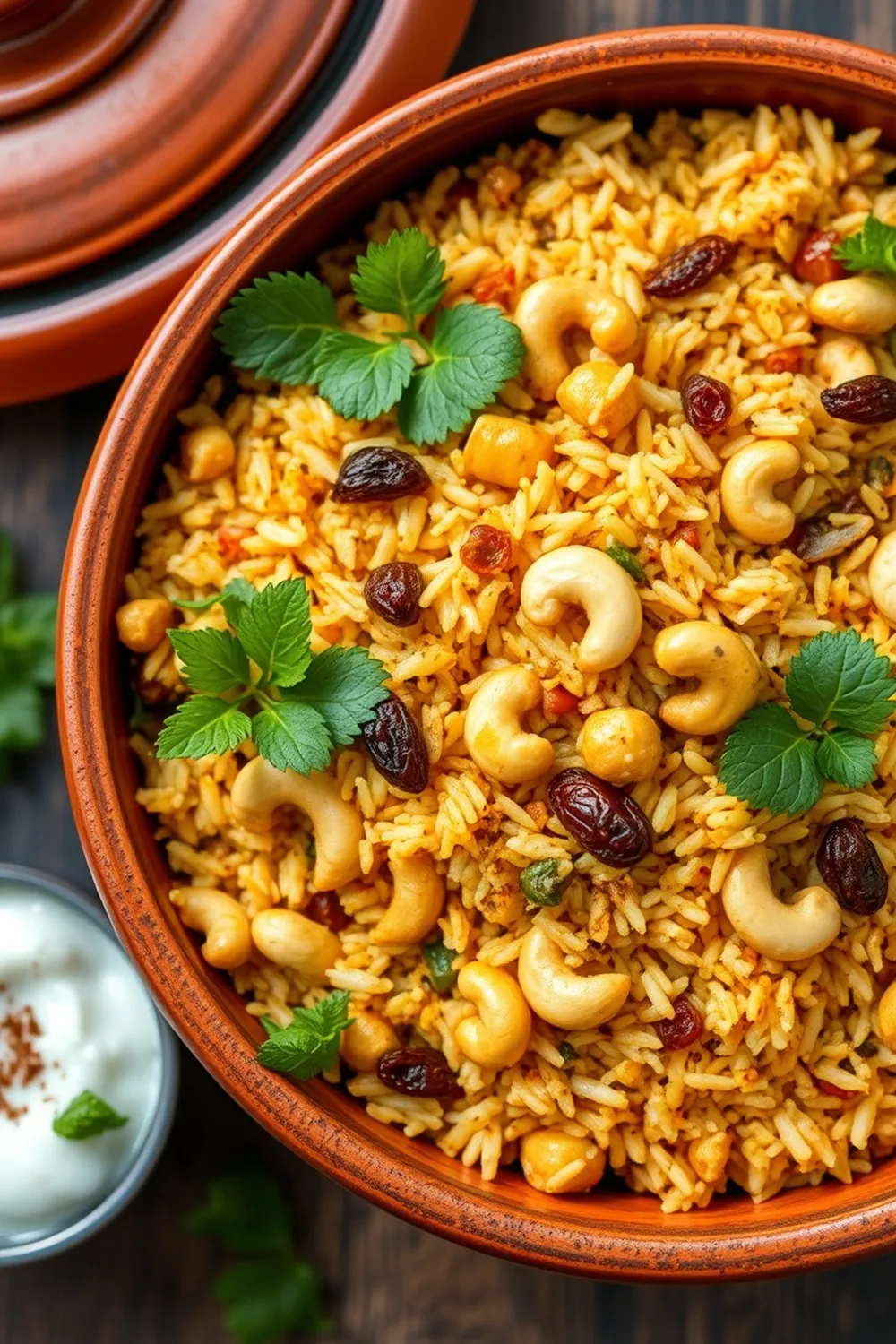- In a large bowl, combine 1 cup coarse rava, 2 tablespoons grated coconut, 1 teaspoon cumin seeds, 1 chopped green chili, 1-inch chopped ginger, a sprig of curry leaves, and 2 tablespoons chopped coriander.
- Add 1 cup yogurt and 1/2 teaspoon salt. Mix into a thick batter.
- Gradually add 1/4 to 1/2 cup water to achieve an idli batter-like consistency. Let rest for 15 minutes.
- Heat a tawa/griddle on medium heat. Pour a ladle of batter and spread thinly using wet fingers.
- Drizzle oil around the edges, cover, and cook for 1-2 minutes until golden brown.
- Flip and cook the other side until crisp. Serve hot with coconut chutney.
- Calories:150 kcal25%
- Energy:627 kJ22%
- Protein:3 g28%
- Carbohydrates:20 mg40%
- Sugar:1 mg8%
- Salt:200 g25%
- Fat:5 g20%
Last Updated on 4 months by Neha Deshmukh
Rava Dosa Recipe – Crispy Semolina Pancakes with Coconut & Cumin
Introduction
Oh, Rava Dosa! These crispy, golden pancakes are a staple in my house. I remember the first time I tried making them – a little intimidated, honestly! But the result? Absolutely worth it. They’re so much quicker to make than traditional dosa, and that lovely semolina texture… just divine. You’ll love how easily they come together, and the flavour is just incredible. Let’s get cooking!
Why You’ll Love This Recipe
This Rava Dosa recipe is a winner for so many reasons. It’s quick – perfect for a weeknight dinner or a weekend brunch. It’s incredibly versatile – you can adjust the spice level and add your favourite veggies. And most importantly, it’s delicious! The combination of the slightly tangy curd, the aromatic cumin, and the fresh coconut is simply irresistible.
Ingredients
Here’s what you’ll need to whip up a batch of these beauties:
- 1 cup rava / semolina / suji (coarse) – about 150g
- 2 tbsp coconut (grated) – about 20g
- 1 tsp cumin / jeera – about 5g
- 1 green chilli (finely chopped)
- 1-inch ginger (finely chopped)
- Few curry leaves (finely chopped) – about 10-12 leaves
- 2 tbsp coriander (finely chopped)
- 1 cup curd / yogurt – about 240ml
- ?? tsp salt (start with ¾ tsp, adjust to taste)
- ?? cup water (start with ½ cup, adjust as needed) – about 120ml
- Oil (for roasting)
Ingredient Notes
Let’s talk ingredients! Getting these right makes all the difference.
Rava / Semolina / Suji: Types and Choosing the Right Grind
There are different types of rava available. For Rava Dosa, you want the coarse variety (also called bombay rava). This gives the dosa its lovely, slightly grainy texture. Fine rava will result in a softer, almost crepe-like dosa, which isn’t quite the same.
Coconut: Fresh vs. Dried – Which to Use?
Freshly grated coconut is always best for flavour! But if you can’t get your hands on it, unsweetened desiccated coconut works perfectly well. Just add it to the batter along with the other ingredients.
Cumin: Regional Variations and Flavor Profiles
Cumin is a cornerstone of South Indian cuisine. You can use whole cumin seeds and lightly roast them before grinding, or use pre-ground cumin powder. I prefer the flavour of freshly roasted cumin, but the powder is a great time-saver.
Green Chilli: Adjusting the Spice Level
I like a little kick, so I use one green chilli. But feel free to adjust this to your preference! Remove the seeds for a milder flavour, or add another chilli if you like it hot.
Curry Leaves: The Aromatic Powerhouse of South Indian Cuisine
Don’t skip the curry leaves! They add such a wonderful aroma and flavour. If you can’t find fresh curry leaves, you can sometimes find them frozen.
Ingredients for the Batter
Now that we’ve prepped our ingredients, let’s get the batter going!
Step-By-Step Instructions
- In a large bowl, combine the rava, grated coconut, cumin, chopped green chilli, chopped ginger, curry leaves, and coriander. Give it a good mix.
- Add the curd and salt. Mix well, using your hands if needed, until everything is nicely combined.
- Gradually add water, a little at a time, mixing continuously. You want to achieve a consistency similar to idli batter – it should be pourable but not too runny.
- Once you’ve reached the right consistency, cover the bowl and let the batter rest for at least 15 minutes. This allows the rava to absorb the moisture and develop flavour.
- Heat a tawa or griddle on medium flame. Once hot, drizzle a little oil around the edges.
- Pour a ladleful of batter onto the tawa and quickly spread it in a circular motion using the back of a wet spoon or your wet fingers. Don’t worry about making it perfect!
- Drizzle a little more oil around the edges of the dosa. Cover the tawa and cook for about 1 minute, or until the bottom is golden brown and crispy.
- Flip the dosa carefully and cook the other side for another 30-60 seconds, until it’s also golden brown and crisp.
- Serve hot with your favourite chutney! Coconut chutney is a classic pairing, but tomato chutney or even a simple sambar work beautifully.
Expert Tips
Let’s make sure your Rava Dosa turns out perfectly every time!
Achieving the Perfect Crispy Texture
The key to crispy Rava Dosa is a hot tawa and a thin spread of batter. Don’t overcrowd the tawa – cook one dosa at a time.
Troubleshooting the Batter Consistency
If the batter is too thick, add a little more water, one tablespoon at a time. If it’s too thin, add a tablespoon of rava and let it rest for a few more minutes.
The Importance of Resting the Batter
Resting the batter is crucial! It allows the rava to absorb the liquid and develop a better texture. Don’t skip this step.
Variations
Want to get creative with your Rava Dosa? Here are a few ideas:
Vegan Rava Dosa
Substitute the curd with vegan yogurt (coconut yogurt works well!).
Gluten-Free Rava Dosa
Rava is naturally gluten-free, so this recipe is already a great option for those avoiding gluten. Just double-check the label on your rava to ensure it hasn’t been processed in a facility that also handles gluten-containing grains.
Spice Level Adjustments
Add a pinch of red chilli powder to the batter for extra heat. Or, for a milder flavour, omit the green chilli altogether.
Festival Adaptations (Ganesh Chaturthi, etc.)
During festivals, my family loves to add finely chopped vegetables like carrots and peas to the batter. It makes the dosas even more colourful and nutritious!
Serving Suggestions
Rava Dosa is best enjoyed hot, straight off the tawa. Serve it with:
- Coconut Chutney
- Tomato Chutney
- Sambar
- A sprinkle of chutney powder
Storage Instructions
Leftover Rava Dosa can be stored in an airtight container in the refrigerator for up to 2 days. Reheat in a tawa or oven to restore some of the crispness. The batter can be stored in the fridge for up to 24 hours.
FAQs
Got questions? I’ve got answers!
What type of rava works best for Rava Dosa?
Coarse rava (bombay rava) is the best choice. It gives the dosa its signature texture.
Can I make the batter ahead of time? If so, how long will it keep?
Yes, you can make the batter ahead of time. It will keep in the refrigerator for up to 24 hours. You might need to add a little water if it thickens during storage.
How do I prevent the dosa from sticking to the tawa?
Make sure the tawa is hot enough before pouring the batter. Also, drizzle enough oil around the edges of the dosa.
What is the best chutney to serve with Rava Dosa?
Coconut chutney is a classic pairing, but tomato chutney and sambar are also delicious options.
Can I use a non-stick tawa for making Rava Dosa?
While a well-seasoned cast iron tawa is traditional, you can definitely use a non-stick tawa. Just make sure it’s clean and dry before using.









